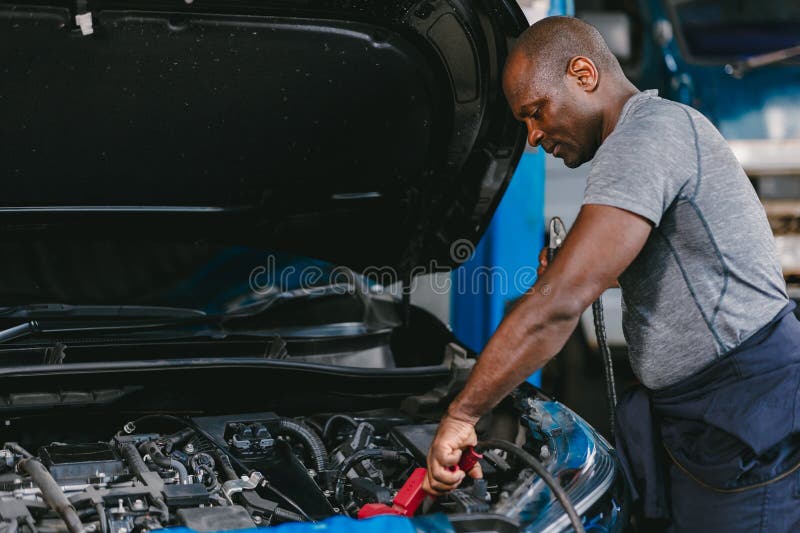All Categories
Featured

Maintaining your vehicle in peak problem calls for focus to numerous maintenance tasks, with liquid checks being amongst the most important. Automobile fluids play essential duties in guaranteeing smooth procedure, security, and long life. Ignoring liquid upkeep can lead to substantial efficiency problems or pricey repairs. Listed below, we'll check out the value of monitoring and preserving your car's fluids and ideas for doing so properly.
- Engine Oil: Shielding Vital Elements. Engine oil makes certain that the relocating components of your engine stay lubricated, decreasing rubbing and stopping overheating. In time, engine oil breaks down or becomes contaminated, reducing its efficiency. Without proper lubrication, engine components can wear rapidly, leading to decreased efficiency or complete failure.
Exactly How to Preserve: Inspect the oil level utilizing the dipstick and complement if required. Follow your lorry's service schedule for oil adjustments, normally every 3,000 to 7,500 miles, relying on the kind of oil and your driving behaviors. 2. Coolant: Handling Engine Temperatures. Coolant, or antifreeze, helps control your engine's temperature, preventing overheating in summer season and cold in winter season. As it circulates, coolant soaks up excess heat and eliminates it via the radiator. Gradually, pollutants can develop, or the liquid might degrade, lowering its efficiency.

Exactly How to Preserve: Frequently check coolant levels in the storage tank and examine for leakages or discoloration. Flush and change coolant as suggested, usually every two to five years. 3. Transmission Liquid: Smooth Equipment Operation. Transmission liquid lubricates the transmission system and ensures smooth equipment changes. A well-maintained transmission liquid stops overheating and safeguards internal parts from wear. Stopping working to keep this fluid can lead to pricey fixings or replacements.
Just How to Preserve: Check the liquid levels (if your car has a dipstick for transmission liquid) and monitor its shade. Burned or dark fluid indicates it's time for a change, commonly every 30,000 to 60,000 miles. 4. Brake Liquid: Ensuring Safety And Security. Brake fluid is crucial for transferring pressure from your foot on the brake pedal to the stopping system, enabling your automobile to stop properly. Over time, brake liquid can soak up dampness, decreasing its boiling point and jeopardizing stopping performance.
How to Maintain: Check the brake liquid degree and problem. Have it replaced if it appears unclean or dark. Numerous manufacturers suggest transforming brake liquid every 2 years or as needed. 5. Power Steering Fluid: Easy Maneuverability. Power guiding fluid permits for smooth and uncomplicated steering. Reduced degrees or contaminated liquid can make steering hard, increasing the risk of mishaps.
Exactly How to Keep: Inspect the fluid routinely and refill if levels are reduced. Watch out for leaks, which might cause guiding system damage if unresolved. 6. Windscreen Washer Fluid: Clear Presence. Though not connected to performance, windshield washer liquid is essential for keeping visibility. It aids maintain the windshield tidy, particularly during negative weather condition or when dust collects.

How to Maintain: Fill up the reservoir as required and utilize washer liquid created for your environment to stop freezing or spotting. Best Practices for Liquid Maintenance. Adhere to the Supplier's Arrange: Refer to your lorry's proprietor manual for maintenance periods particular to your vehicle. Monitor for Leaks: Identifying fluid leaks early can stop severe damage. Seek pools or discolorations under your lorry. Make Use Of the Correct Fluids: Always make use of liquids advised by your car's producer to prevent compatibility problems. Pay Attention to Indication: Dashboard caution lights, odd smells, or uncommon efficiency can show fluid-related problems. The Advantages of Normal Fluid Checks. Enhanced Efficiency: Fluids in excellent condition aid all systems run smoothly. Prolonged Life-span: Appropriate lubrication and cooling avoid early deterioration on elements. Enhanced Safety: Brake liquid and coolant are necessary for safe driving. Price Cost savings: Attending to fluid concerns early can stop pricey repair services later. Verdict. Monitoring and maintaining your car's fluids is a simple but essential part of car ownership. Whether it's oil, coolant, or brake fluid, remaining positive with maintenance is the essential to lasting automobile wellness.
Latest Posts
Industrial Roof Covering Services by Weathercraft Firms
Published Apr 29, 25
1 min read
Equipping Youth with WyHy's Monetary Tools
Published Apr 28, 25
1 min read
Join WyHy FCU – Key Advantages for Your Financial Success
Published Apr 28, 25
1 min read